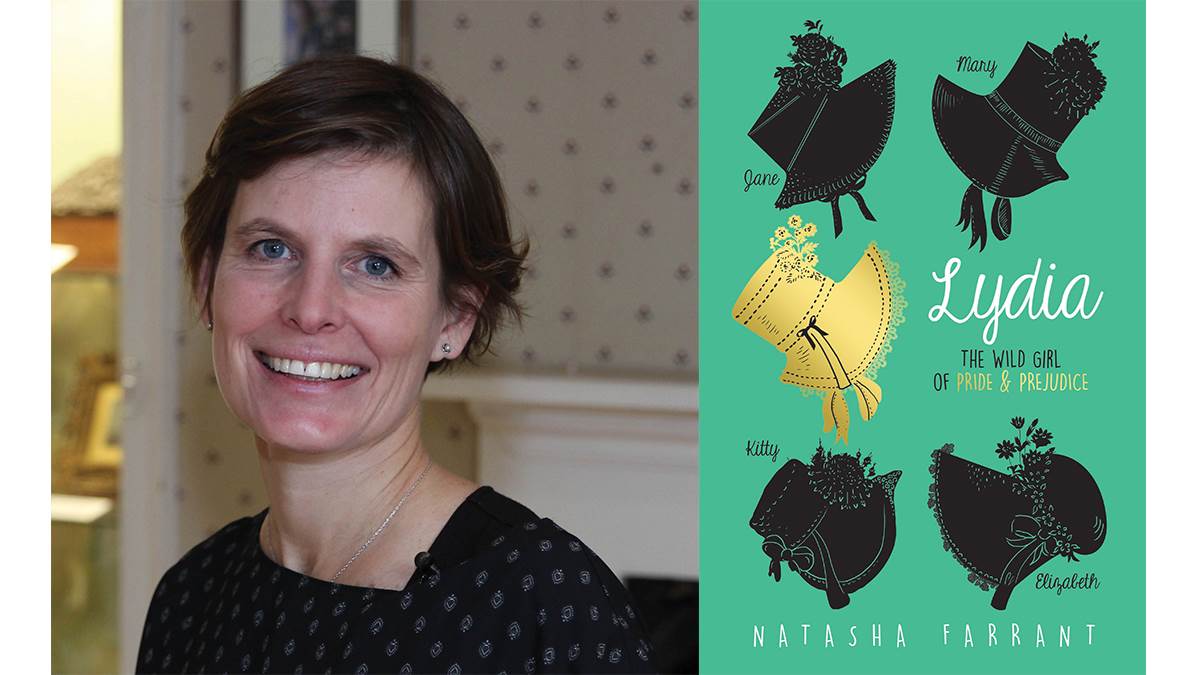Lydia's story: back in the world of Pride and Prejudice
Published on: 14 September 2016 Author: Sophie Offord
Natasha Farrant has reimagined Pride and Prejudice from the view of youngest Bennet, Lydia - and it's a total blast, guaranteed to satisfy your cravings for extra Mr Darcy and the romantic goings-on of the Bennet sisters.
We caught up with Natasha to find out more - and get her take on why Jane Austen's Pride and Prejudice keeps winning over new hearts.

What is it about Lydia that makes her such a quintessential teen, do you think?
Like many teenagers I know, Lydia is outwardly confident - but behind her loud exterior, she hasn't a clue what she is doing. And like many of Austen's characters, she is very young - 15 when the story begins, only just 16 when it ends. She's led a happy, sheltered childhood, but now she is longing for her real life to start.
She has a very clear idea of what she wants, and is single-minded in her drive to get it, rarely stopping to consider what the consequences might be for others. She has a huge appetite for life, and immense confidence in the future.
What made you want to tell Lydia's story?
Lydia's story is such a cataclysmic event in Pride and Prejudice, and she is such a pivotal character, but we know very little about either. She is shown to us again and again as 'silly, vain, ignorant and absolutely uncontrolled'. And yet, somehow, the page lights up whenever she appears.
The joy of Austen, of course, often lies in between the lines - she tells us so much in so few words.
I love Lydia's first line in Pride and Prejudice: 'I am not afraid, for though I am the youngest, I am also the tallest.'
From the outset, you know that you are dealing with someone not necessarily very logical, but completely fearless. I actually fell in love with her from that very first sentence...
Then, when I was asked if I would be interested in telling her story, I swear Lydia herself came to life inside my head with a great sigh of happiness and much tapping of her foot, saying: 'At last! MY side of the story!' From then on, she didn't give me a moment's peace.
Why do you think Jane Austen remains such a popular author?
Besides her razor-sharp wit, her polished prose, her revolutionary use of free indirect speech? Her mordant satire tempered by romance, her tremendous heroines who take on the world and win the day, against all expectations?
Leaving all that aside, it's not the plots, right? 'Middle-class girl with no money marries rich man'. I mean, as a plot, it carries on working (hello, Disney) but why do we love hers so much? It has to do, in my opinion, with the extraordinary courage of her characters and their refusal to compromise.
Lizzy Bennet turning down two marriage proposals, at a time when there were no other options for women of her class with no money, is not just brave, it's practically revolutionary. There is a fearlessness to her heroines, as well as to Austen's writing, which make them feel eternally fresh and modern.
Then there is also Austen's restraint, the fact that so much is left to the reader's imagination, so that each time you read one of her books, you feel like you are discovering something new. I could go on! Shall I go on? How much space do you have? She was just a genius.
Lots of teens tend to go to the classics as some of the first 'adult' books they read - why do you think that is?
The first step is to do with education, and the fact that librarians and parents are quick to recommend books that they have read and loved, and that are perceived to be good because they have withstood the test of time.
The second step is that once you start reading these books that have withstood the test of time, got your head round the language and learned up a bit about historical references and so forth, you understood quite quickly why they are called classics and continue to be read: books survive for a reason. They can be funny or sad or romantic, rip-roaring adventures or biting satires, but at their heart they contain a universal human truth beautifully expressed.
Discovering a book that still feels as relevant today as on the day it was written, establishing that mental connection with a writer who has been dead for maybe 200 years - it's a fairly mind-blowing experience.
Topics: 9-11 years, 12+, Classics, Librarian, Parent/carer, Teacher (secondary), Writer, KS3, Secondary, Interview, Features





